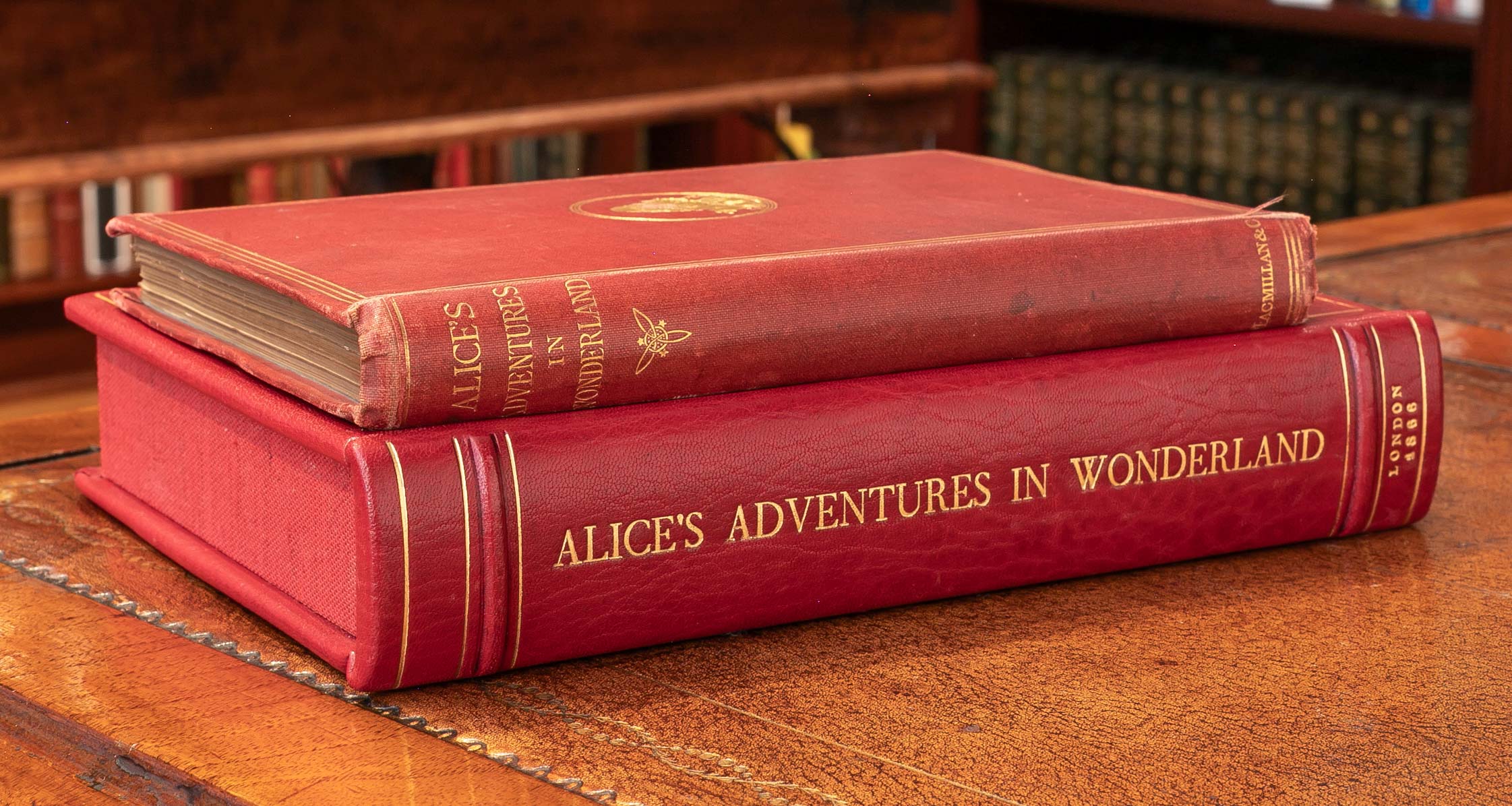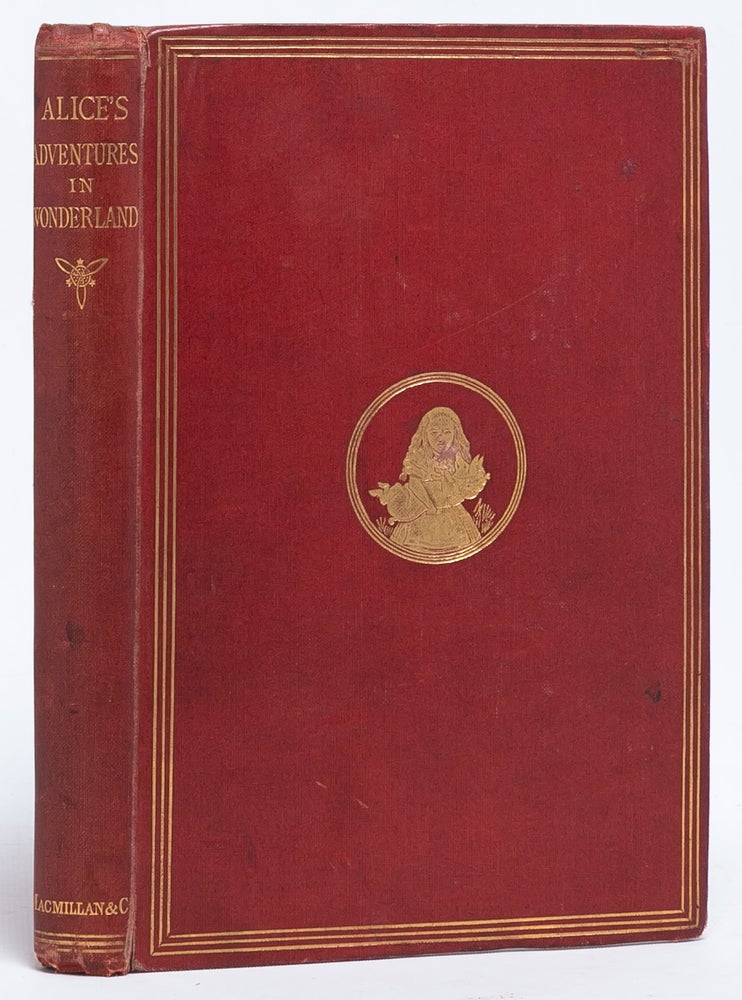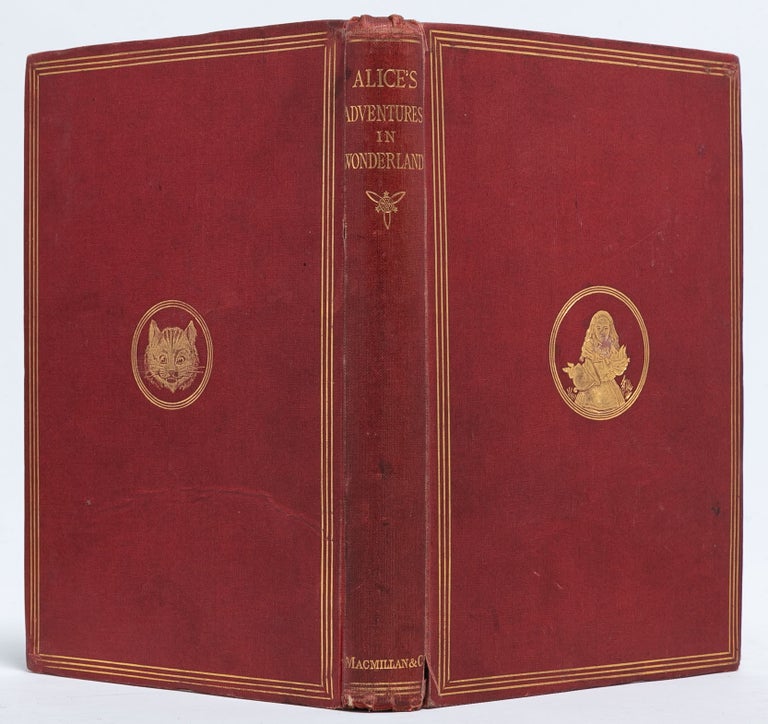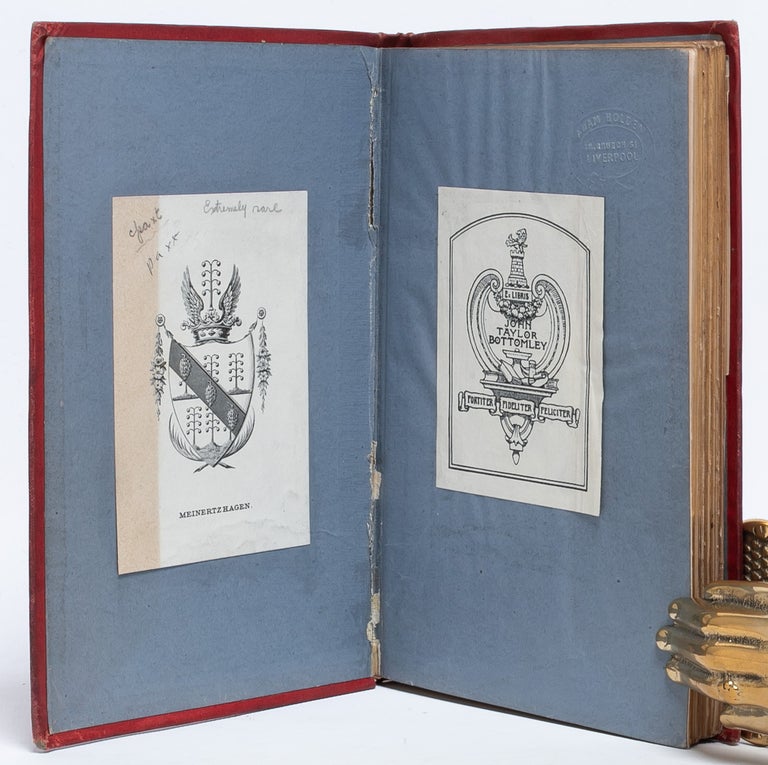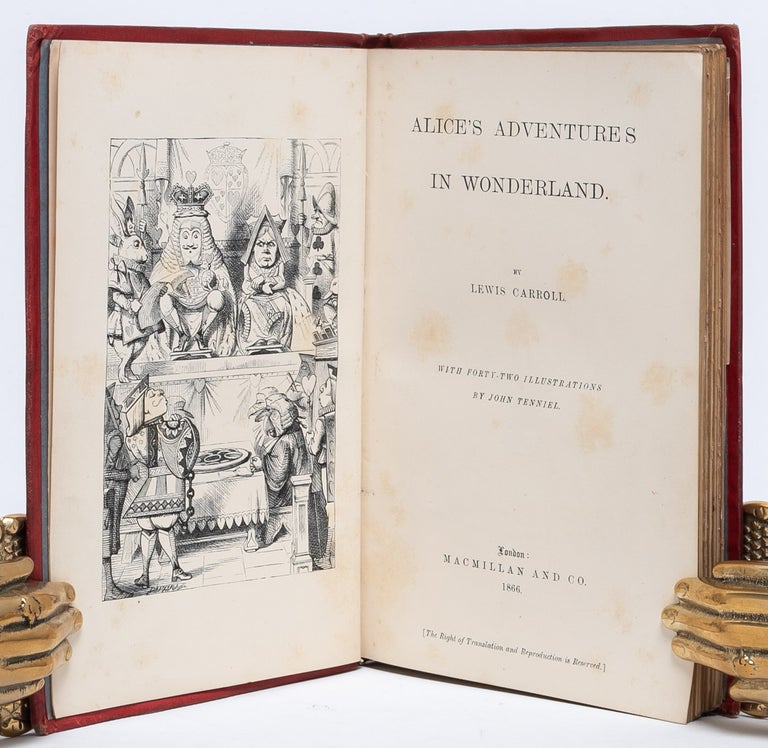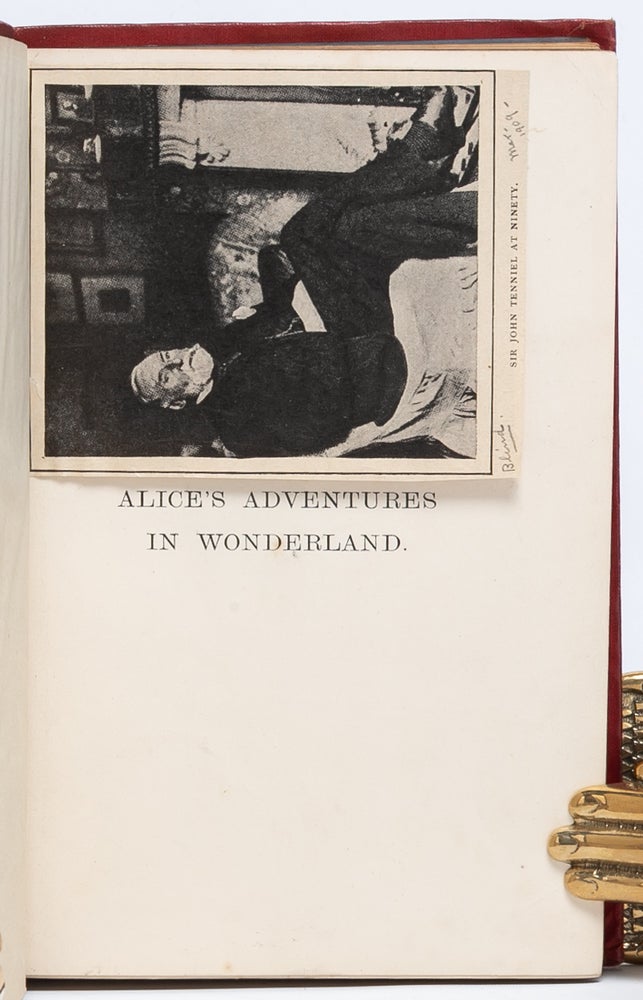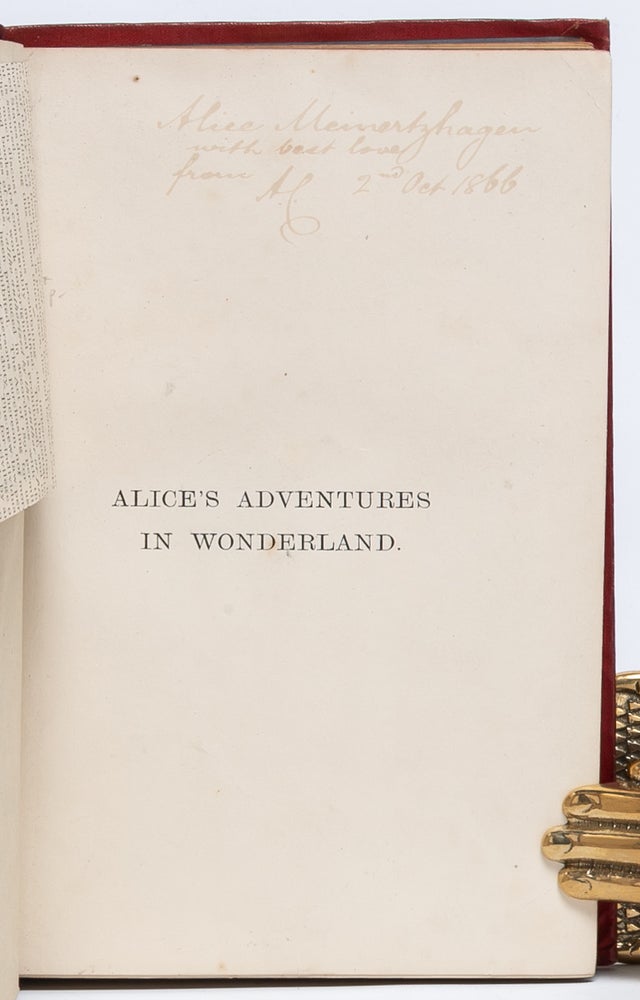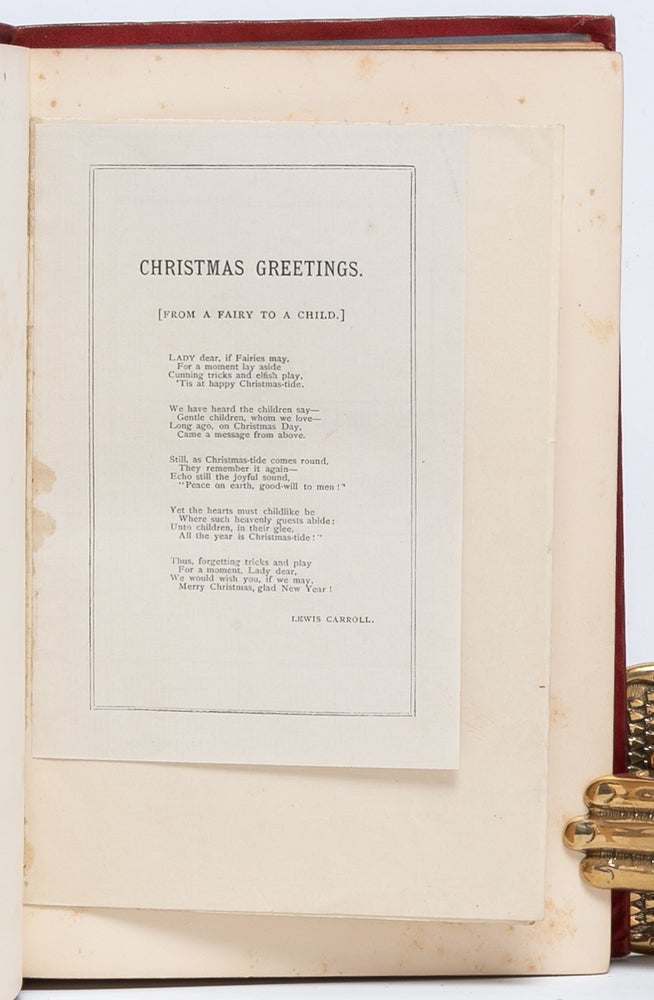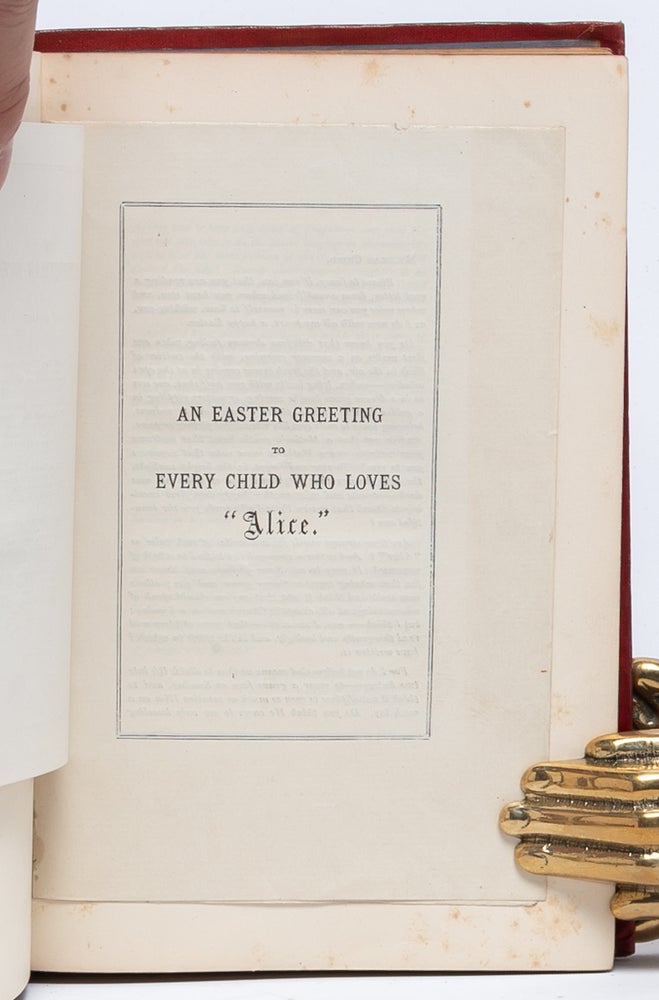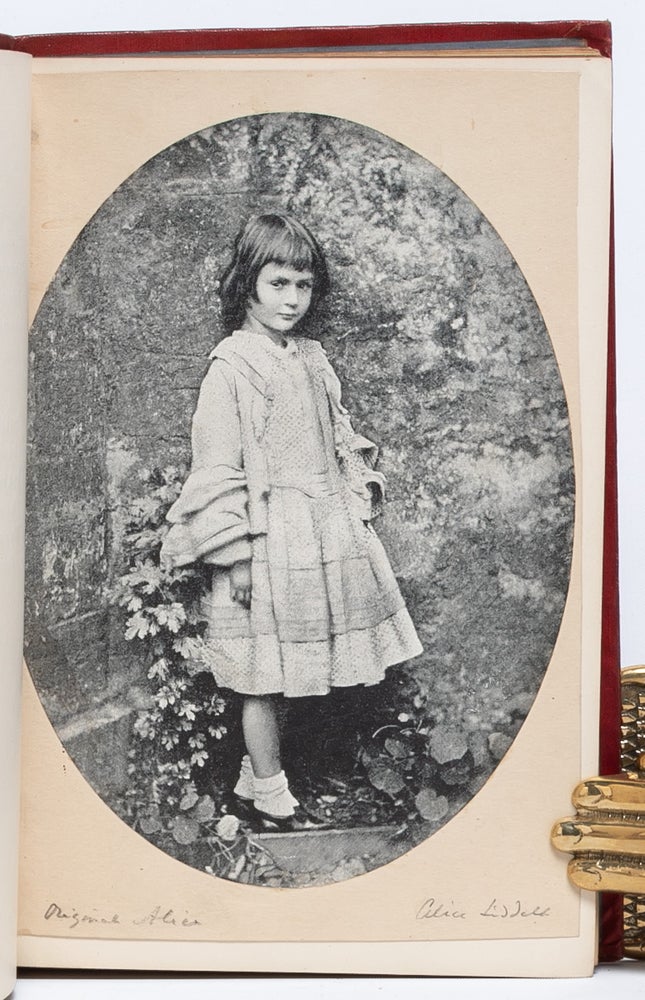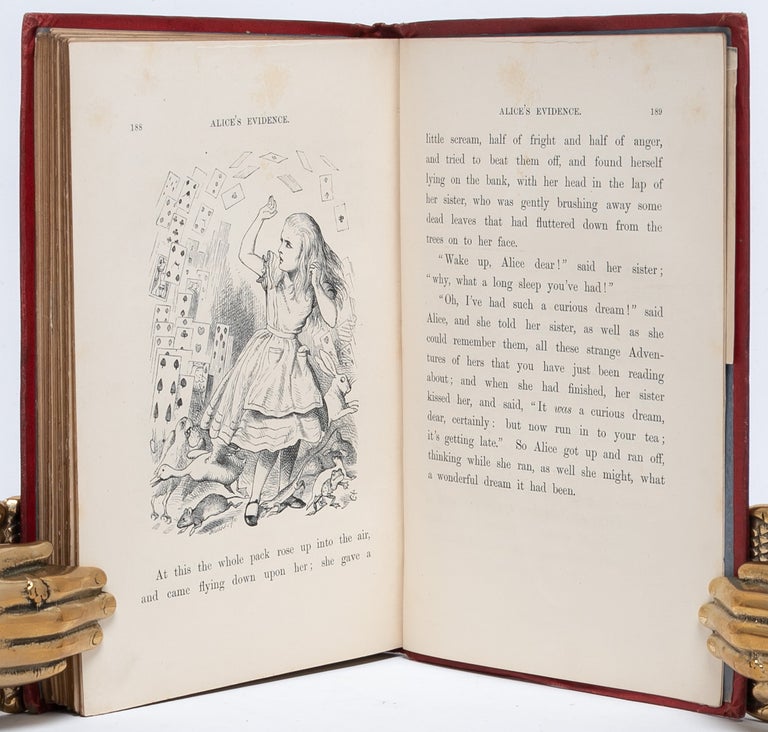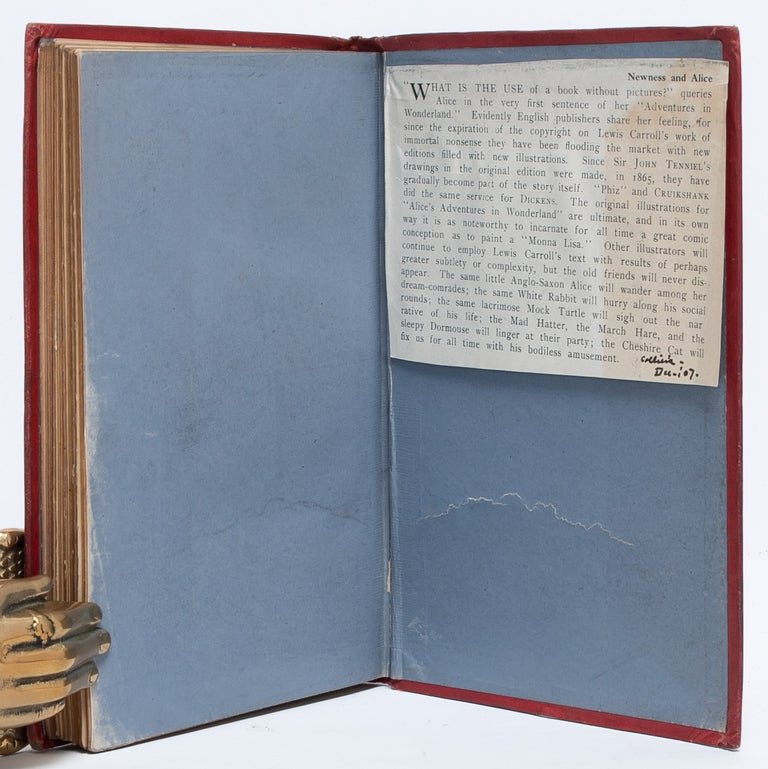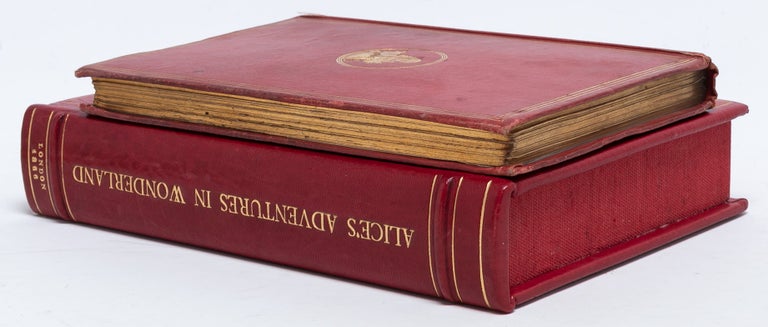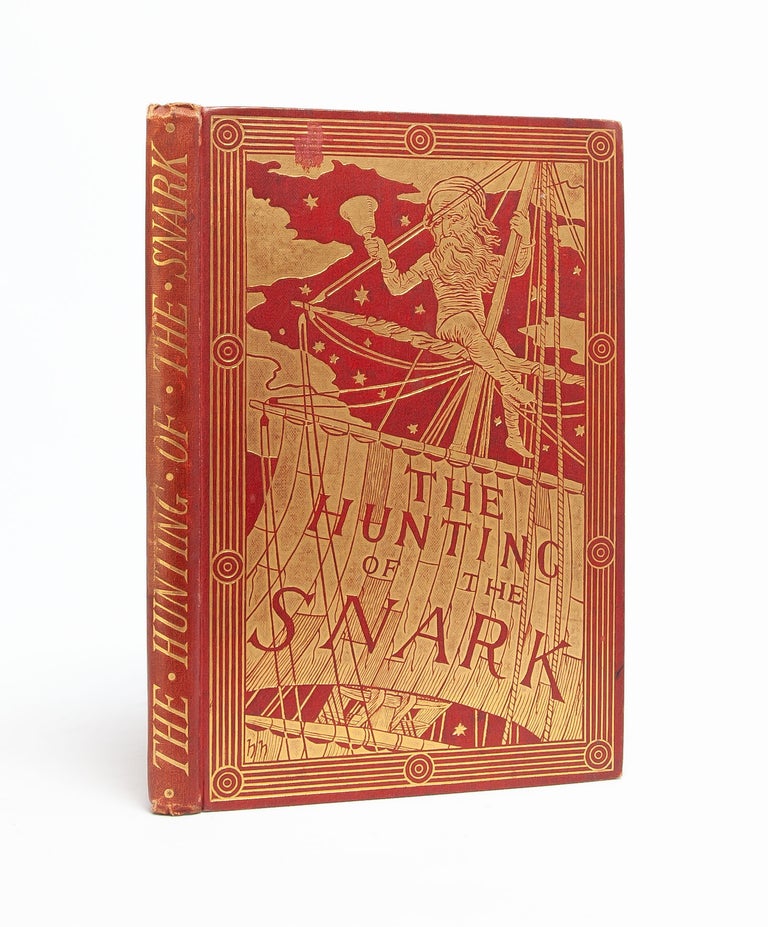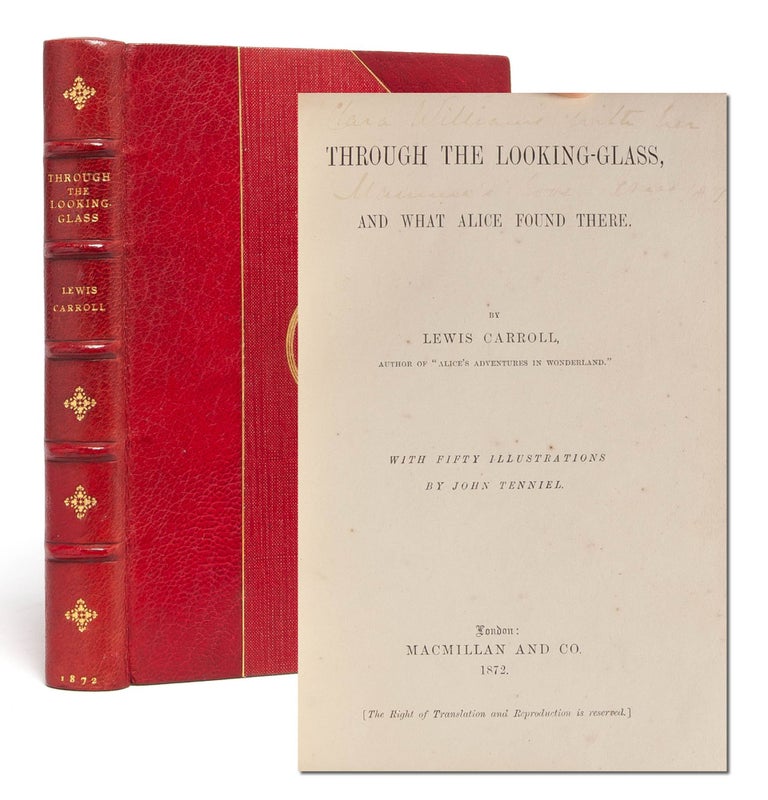Alice's Adventures in Wonderland
London: Macmillan & Co., 1866.
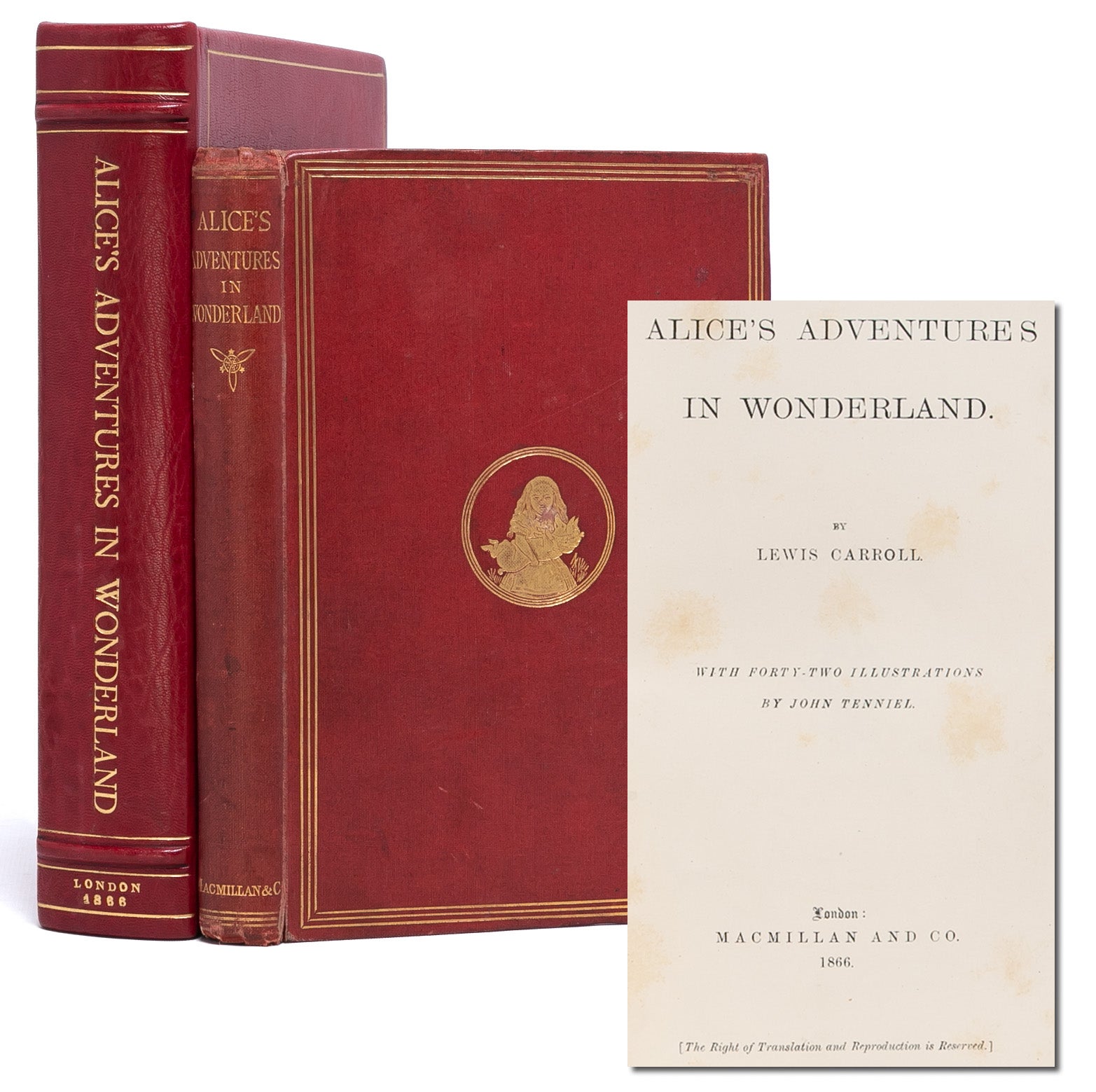

Alice's Adventures in Wonderland
London: Macmillan & Co., 1866. Second (first published) edition. The book that forever changed the face of children’s literature. A bright copy in the original publisher's red, gilt-stamped cloth, gilt edges, light blue end papers (first issue). Inverted "S" on the last line of the contents page. Three small splits on the cloth along the spine, corners pushed in, crease running across the rear board. With a contemporary gift inscription to the original recipient: "Alice Meinertzhagen, with best love, AC, 2nd October 1866." Bookplates of Meinertzhagen and John Taylor Bottomley on the front end papers. Tipped in are Carroll's "Chrismas Greetings" and "An Easter Greeting." Also tipped in are portraits of John Tenniel and Alice Liddel, as well as a portion of a magazine article tipped onto the rear paste-down. A book that is becoming increasingly difficult to find in collectible condition. Housed in a custom full red morocco clamshell case.
"On the surface, Alice's Adventures in Wonderland is a paradise of puns, paradoxes, and anthropomorphism. Underneath, it is a deeply honest portrayal of childhood and adulthood. What unites Carroll's wordplay and analytical anomalies with truth is Alice. Wearing a simple, traditional knee-length dress and pinafore, Alice is more complex and daring than her apparel. She talks to herself (typical of a creative child), is startled by her changing height (a parody of puberty), fumbles through strange, increasingly grown up encounters, and remains honest and curious all the while. She is courageous in the act of growing up...Carroll's classic is an absurd yet magnificently perceptive form of entertainment unlike anything that came before or even after it" (Allen).
Alice's impact was immediate. At a time when most children's books were highly didactic and focused on clear-cut morality, Wonderland offered something new and fantastical; it gave young readers an opportunity to be amused, to sort through logical puzzles, and to imagine a world unlike any other in literature. Thanks in part to Carroll, "children's books entered a new, more fantastical phase: instruction with delight" (Allen). Near Fine (Item #6083)
